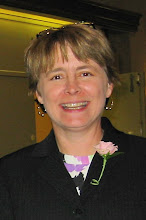Thursday, May 31, 2012
Proximate Cause Charge
Since I mentioned in my previous post that I was going to the meeting of a committee considering a proposal to change the pattern jury charge on proximate cause, I figured I should file a quick update because I know that there may be as many as one person wondering how that turned out.
Here's the proposed charge, drafted by a subcommittee, that was approved by the Bench and Bar Committee:
"In order for the Plaintiff to recover, you must find that the Defendant's act [or failure to act] was the proximate cause of the Plaintiff's injuries. "Proximate cause" is a legal term. When a person's act [or failure to act] naturally and probably brings about the harm, it is the "proximate cause" of those injuries.
"The "proximate cause" of an injury must be more than a remote or trivial factor. However, it does not have to be the only cause of the Plaintiff's injuries. Liability may be imposed when the Defendant's conduct played a part in bringing about the injury, even if some other forces for which the Defendant was not responsible contributed to the harm in some way."
The committee also proposed replacing the term "proximate cause" with the term "legal cause" because "proximate" is not a word that most jurors know.
The committee's recommendations will be sent to the Council of Superior Court Judges, which has a committee that updates the pattern charges.
There was some discussion among the Bench and Bar Committee that the use of the words "injuries" and "harm" in the proposed change might make it less neutral than the current charge. Another concern was that the proposed change did not contain the phrase "unbroken by other causes," which is in the current pattern charge.
But the committee ultimately decided to send the draft as written by the subcommittee to the judges' council.
In case you've been wondering through all of this: "What is the current pattern charge?" it is as follows:
"Proximate cause is that which, in the natural and continuous sequence, unbroken by other causes, produces an event and without which the event would not have occurred. Proximate cause is that which is nearest in the order of responsible causes, as distinguished from remote, and that which stands last in causation, not necessarily in time or place, but in causal relations."
See why it needs work?
The Bench and Bar Committee also decided to take a look at a change in the language of the oath of bailiffs, which is found in O.C.G.A. 15-12-140. Because this is set out in a statute, a recommendation for change would have to be made to the State Bar to take to the legislature.
The current oath states:
"You shall take all juries committed to your charge during the present term to the jury room or some other private and convenient place where you shall keep them without meat or drink (water excepted), unless otherwise directed by the court. You shall make no communication with them yourself nor permit anyone to communicate with them, except by leave of the court. You shall discharge all other duties which may devolve upon you as bailiff to the best of your skill and power. So help you God."
The change under consideration would eliminate: "where you shall keep them without meat or drink (water excepted), unless otherwise directed by the court."
Presumably that will prevent jurors from being starved during deliberations, or perhaps under a broader reading of the language, being forced into vegetarianism.
Subscribe to:
Post Comments (Atom)

No comments:
Post a Comment